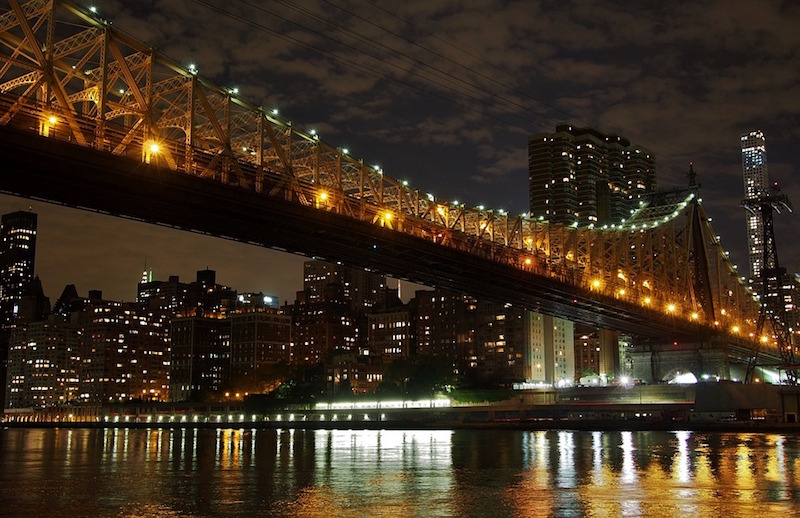Cornell Tech, under construction on Roosevelt Island in New York City, recently announced details of its plan to achieve Net Zero energy efficiency for The Bloomberg Center.
Designed by the architecture firm Morphosis, The Bloomberg Center is the first academic building to be constructed on the Cornell Tech campus. The first phase of this development will open this September.
The campus plans include photovoltaic arrays, geothermal ground source heat pumps, an energy-efficient facade balancing the ratio between transparency and opaqueness to maximize building insulation and decrease energy demand, and smart building features that will monitor lighting and plug load use. The strategy to achieve a low energy building is through a stepped approach, prioritizing reduction in energy demand through load reductions and maximizing passive and energy efficient design, as well as using renewable energy to power the building systems.
There are 80 closed-loop geothermal wells, each 400 feet deep, that were drilled below the main campus public open space. The ground-source heat pumps will be used with an active chilled-beam system.
An acre-sized photovoltaic array tops The Bloomberg Center and neighboring The Bridge building. The building designs incorporate the panels as an integral architectural feature. The array on The Bloomberg Center also provides building shading.
Related Stories
Codes and Standards | Mar 22, 2019
Tool helps cities develop framework for life-cycle energy policies and track progress
Identifies policies, funding sources to address building energy use.
Codes and Standards | Mar 21, 2019
New York City contractors adding 5% to 10% to construction costs due to trade war
Tariffs on steel, aluminum, and other materials swell budgets.
Codes and Standards | Mar 20, 2019
Codes organizations to develop new guidelines on shipping containers as building components
Intl. Code Council and Modular Building Institute combine forces.
Codes and Standards | Mar 19, 2019
Plan for transformation of Lower Manhattan streetscapes unveiled
Pedestrian-friendly “Slow Streets” pilot starts on Earth Day 2019.
Codes and Standards | Mar 15, 2019
Newly developed building materials could have big impact on sustainability
Transparent wood, self-cooling walls, bricks that filter air pollutants among the technological breakthroughs.
Codes and Standards | Mar 14, 2019
U.S. and Canada differ on how to evaluate field performance of windows, curtain walls
Variations include laboratory test method for determining rate of air leakage.
Codes and Standards | Mar 13, 2019
Climate change can’t be stabilized without addressing urban sprawl
Even if power goes green, transportation will still be a major emissions source.
Codes and Standards | Mar 12, 2019
Virginia county hones new rainwater harvesting standard
Developer prompts new rules to use rainwater for heating and air conditioning.
Codes and Standards | Mar 8, 2019
Portland delays requirement for posted warnings on unreinforced brick and stone buildings
Regulation would mandate signs warning that buildings could be unsafe during earthquakes.
Codes and Standards | Mar 7, 2019
California will allow flame retardant-free building insulation
State also repeals business furniture flammability standard.

















